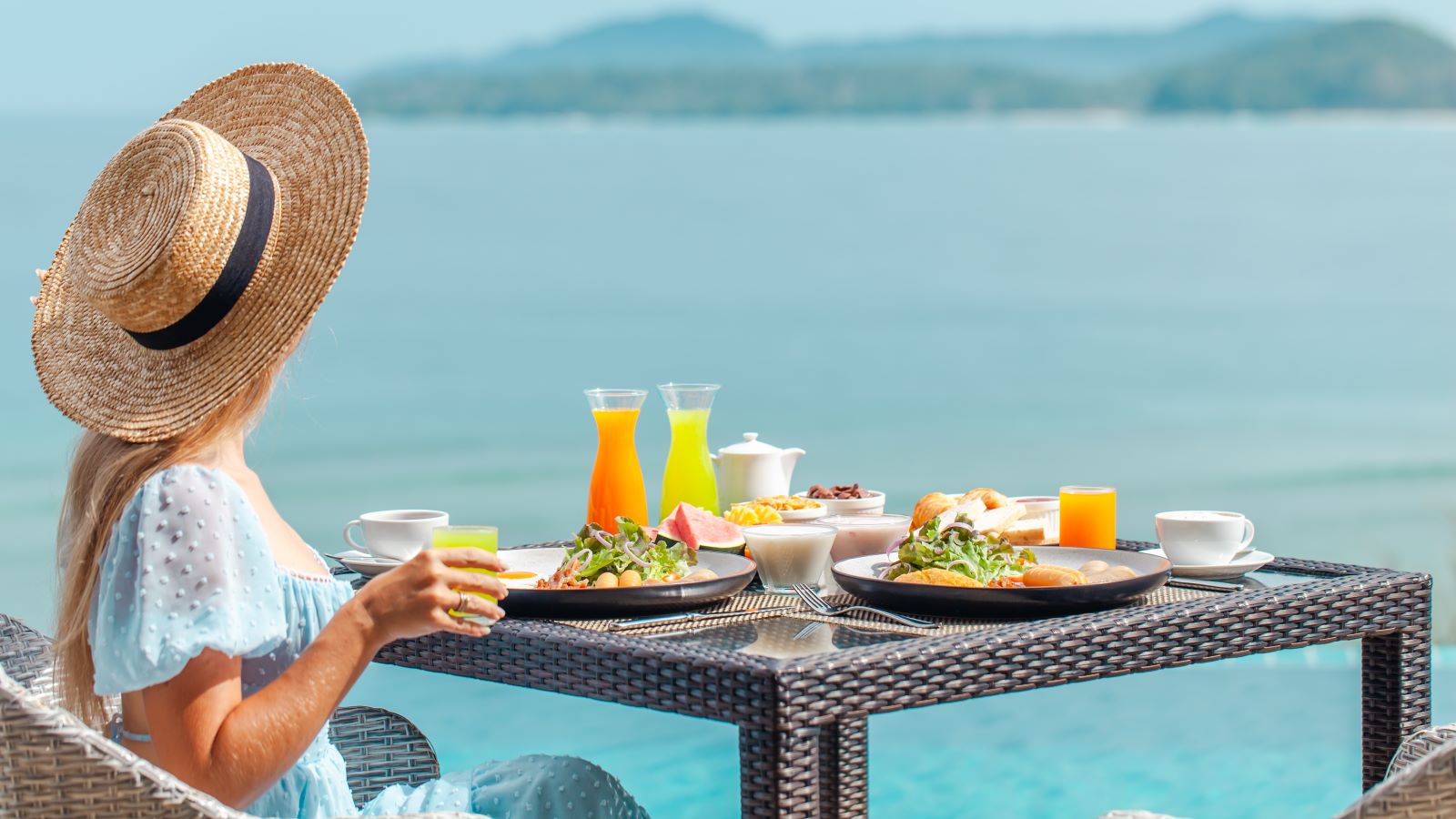<< Back
5 Ways to Keep Your Diet on Track During Vacation

February 01, 2024
Vacation means switching from business suit to bathing suit and trading meetings for rest and relaxation.
But what about your diet and all those good habits you have going on?
“While vacation is a time to enjoy yourself, I find it takes many people more time to get back on track if they throw all their health changes out the window for a week,” notes Elizabeth Barclay, MBA, outpatient registered dietitian at St. Vincent’s Medical Center. “This also creates an ‘all or nothing’ mindset that can lead to inconsistent change down the road.”
Here’s how to stay on track with your diet while enjoying a well deserved vacation, according to a dietitian.
5 tips for sticking to your diet on vacation.
The key to balancing fun with good health is to keep your commitment to making wise nutritional decisions top of mind every time you sit down for a meal, even while on vacation, Barclay says.
Think about these five tips during your next vacation meal:
- Create balanced plates. “Enjoy yourself but remember to create a balanced plate with good protein, vegetables and complex carbohydrates,” she begins. “This way, you can have a combination of nutrient-dense foods and foods you enjoy that may not have as many nutrients.”
- Stop eating when you feel full. Listening to your body’s signals leaves you feeling satisfied without feeling overly full. If you get hungry again, you can always have more!
- Stay hydrated. Water helps quell hunger and makes you feel fuller. Pack a portable water bottle in your carry-on so you always have a place to store water.
- Choose less sugary drinks. Many cruises and all-inclusive vacations include alcohol, and unfortunately, those tasty tropical drinks tend to be high in sugar. Try using healthier mixers like soda water and lemon juice.
- Eat before you drink. Make sure you eat before reaching for an alcoholic drink. This helps you feel full before downing sugary drinks.
Rethink what foods are “good” and “bad”.
Occasionally indulging at the table is fine, especially on holidays and vacations, Barclay says. To incorporate treats into your daily meal plan, she stresses something called “food neutrality.”
“This is when you see all foods as the same, not ‘good’ or ‘bad,’” she explains. “Instead, focus more on the nutrients you’ll receive from foods and work to build a balanced plate with foods you might consider an indulgence.”
Doing this helps make foods typically considered “bad” less special, which helps us avoid overindulging in them on special occasions.
“We allow ourselves to have this food whenever we want instead of restricting ourselves only to special occasions. For example, having salmon with asparagus over rice pilaf and then a slice of chocolate mousse cake topped with fresh strawberries gives you a meal with protein, vegetables, complex carbohydrates and fruit,” Barclay says.